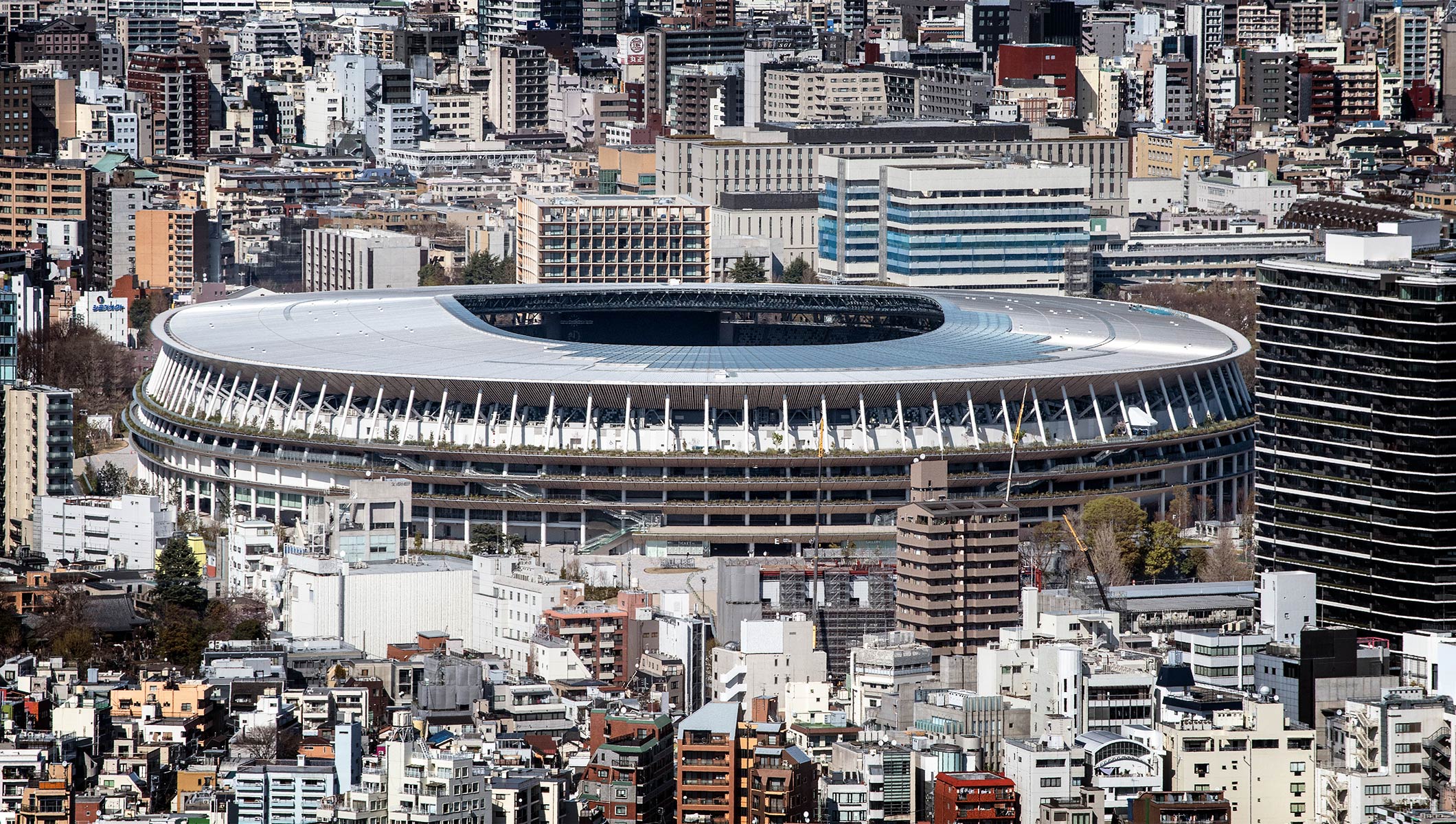AS SOCIETY BEGAN TO COME TO TERMS WITH THE RAPID SPREAD OF COVID-19 AROUND THE WORLD, THE IOC AND ITS COUNTERPARTS IN JAPAN KEPT A CLOSE WATCH ON THE DEVELOPING PANDEMIC. WHEN THE ANNOUNCEMENT WAS MADE THAT THE OLYMPIC GAMES TOKYO 2020 WERE TO BE POSTPONED BY A YEAR, IT WAS THE RESULT OF AN INFORMED, ALBEIT DIFFICULT, DECISION ARRIVED AT WITH THE FULL CONSENSUS OF ALL PARTIES INVOLVED.
Christophe Dubi, the IOC’s Olympic Games Executive Director, explains: “We were fortunate to be working with a very good Organising Committee and were able to navigate through complicated discussions because everyone was speaking with one voice: the IOC, the Organising Committee, the City of Tokyo and the government of Japan. This alignment between all parties really helped us to make the right decision at the same time.”
Now that it has been formalised and the new dates chosen, the practicalities of moving the event can begin in earnest, in partnership with everyone involved. Outlining what needs to be done, Pierre Ducrey, Olympic Games Operations Director, explains: “It’s a very complex jigsaw puzzle of negotiations with private and public parties and a number of stakeholders in the Olympic Movement, to ensure that we have everything that we need.”
TOKYO 2020
ATHLETE WELL-BEING
First, there are the athletes. Concerns about their health and well-being were a major motivating factor for the postponement decision. Some 11,000 athletes from 206 National Olympic Committees (NOCs) are hoping to compete at the Olympic Games. They have known for several years where and when the Games were due to take place and have trained, hoping to peak this summer. Although 57 per cent had already qualified for the Games and have now received assurances that their qualifications will be valid next year, 43 per cent have yet to do so. But all will now have to re-plan their training programmes for the next year. This is currently further complicated by containment measures in place in many countries, which have made training, particularly for team sports, hugely challenging.
SPORTING CALENDARS
Then there is the sports calendar. The sporting landscape is very crowded, with many events serving as training and qualification opportunities for the Olympic Games. The International Federations, and indeed the professional leagues, were already facing difficult choices as a result of the health crisis. The decision to postpone the Games means that sports federations are now able to adjust their own calendars too, but will need to fit in with the new dates for the Games. The sports world has shown solidarity, with some federations already deciding to shift their own world championships to 2022. This nonetheless represents a logistical and financial challenge for them, as well as further uncertainty for the athletes, who were almost certainly training for these events too.

olympic.org
A medida que la sociedad comenzó a llegar a los términos con la propagación rápida de COVID-19 en todo el mundo, el COI y sus contrapartes en Japón mantuvieron un reloj cercano a la pandemia en desarrollo. CUANDO SE HIZO EL ANUNCIO DE QUE LOS JUEGOS OLÍMPICOS TOKIO 2020 SERÍAN POSPUESTOS POR UN AÑO, FUE EL RESULTADO DE UNA DECISIÓN INFORMADA, AUNQUE DIFÍCIL, CON EL CONSENSO COMPLETO DE TODAS LAS PARTES INVOLUCRADAS.
Christophe Dubi, Director Ejecutivo de los Juegos Olímpicos del COI, explica: “Tuvimos la suerte de trabajar con un muy buen Comité Organizador y pudimos navegar a través de discusiones complicadas porque todos hablaban con una sola voz: el COI, el Comité Organizador, la Ciudad de Tokio y el gobierno de Japón. Esta alineación entre todas las partes realmente nos ayudó a tomar la decisión correcta al mismo tiempo «.
Ahora que se ha formalizado y se han elegido las nuevas fechas, los aspectos prácticos de mover el evento pueden comenzar en serio, en colaboración con todos los involucrados. Al describir lo que hay que hacer, Pierre Ducrey, Director de Operaciones de los Juegos Olímpicos, explica: «Es un rompecabezas muy complejo de negociaciones con partidos privados y públicos y una serie de partes interesadas en el Movimiento Olímpico, para garantizar que tengamos todo lo que necesitamos». . «
TOKIO 2020
BIENESTAR DE LOS ATLETAS
Primero, están los atletas. Las preocupaciones sobre su salud y bienestar fueron un importante factor de motivación para la decisión de aplazamiento. Unos 11,000 atletas de 206 Comités Olímpicos Nacionales (CON) esperan competir en los Juegos Olímpicos. Saben desde hace varios años dónde y cuándo se celebrarán los Juegos y se han entrenado, esperando alcanzar su punto máximo este verano. Aunque el 57 por ciento ya había calificado para los Juegos y ahora ha recibido garantías de que sus calificaciones serán válidas el próximo año, el 43 por ciento aún no lo ha hecho. Pero ahora todos tendrán que volver a planificar sus programas de capacitación para el próximo año. Actualmente, esto se complica aún más por las medidas de contención vigentes en muchos países, que han hecho que el entrenamiento, particularmente para los deportes de equipo, sea un gran desafío.

CALENDARIOS DEPORTIVOS
Luego está el calendario deportivo. El panorama deportivo está muy lleno, con muchos eventos que sirven como oportunidades de entrenamiento y calificación para los Juegos Olímpicos. Las Federaciones Internacionales, y de hecho las ligas profesionales, ya se enfrentaban a decisiones difíciles como resultado de la crisis de salud. La decisión de posponer los Juegos significa que las federaciones deportivas ahora también pueden ajustar sus propios calendarios, pero deberán ajustarse a las nuevas fechas de los Juegos. El mundo del deporte ha mostrado solidaridad, con algunas federaciones que ya han decidido cambiar sus propios campeonatos mundiales a 2022. Sin embargo, esto representa un desafío logístico y financiero para ellos, así como una mayor incertidumbre para los atletas, que casi seguramente también estaban entrenando para estos eventos. .


